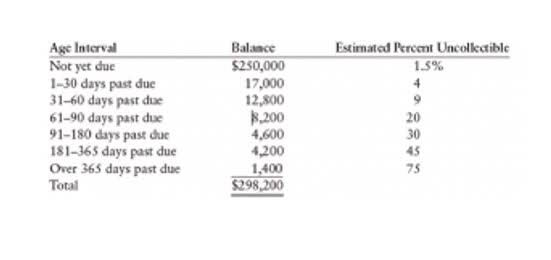
For example, if customers frequently mention uncomfortable beds, it might be time to budget for new mattresses to enhance the guest experience. Now that we have some of the technicalities of budgeting behind us, let’s take a look at the 5 steps to creating your hotel budget. Capital budgets focus on long-term investments, such as upgrading to smart room technology. Instead of concentrating on short-term returns, capital budgets retained earnings are designed to evaluate how these longer-term projects will add value and drive growth over time. This way, you can also get their buy in, helping to streamline the process.
International Institute of Hotel Management Pune
It might look like a never-ending process, and still, you won’t be left with accurate data. For effective hotel budgeting and forecasting, you will need reliable and distinct backup data. Using historical data and major events to predict future demand and set the next year’s budget is called forecasting. Many hotels use forecasting to make informed decisions in inventory, staffing levels, and of course, pricing. Let’s say you notice a big event coming up and expect an influx of demand. You can use forecasting to ensure you are adequately prepared with the right resources to meet the demand.
Why a Career in Hotel Management at Lexicon IHM is Your Passport to Global Opportunities

It also consists of any other items you purchase, such as room items, licenses, common area benefits, etc. Besides, talking to employees from different levels will help you hotel budget understand their everyday plights and how to fix them financially. This comparison enables management to assess the effectiveness of their strategies, identify areas where improvements are needed, and take corrective action if necessary. Furthermore, this collaborative approach fosters a sense of teamwork and empowers them to contribute to the overall success of the business.
Create a Hospitality Budget Plan (In 7 Steps)
Some hoteliers forget to include this line item in their budget and find themselves struggling to fill a hole of missing revenue needed to honor team member incentives. Ensure that expenses related to incentives for all departments are accounted for in your upcoming budget, especially if you promote incentive programs when hiring hotel staff. Treat any leftover revenue from unmet incentives as a surplus that can be reinvested in other areas of the budget, such as hotel staff training.
- Utilities such as electricity, water, and gas are variable expenses that hotels need to account for.
- This includes advertising, website development, social media campaigns, and other promotional activities.
- A hotel should estimate these costs and prioritize them based on their impact on total revenue or guest satisfaction.
- It might look like a never-ending process, and still, you won’t be left with accurate data.
- You need to list it as an asset and then amortize it over its useful life.
- A plan helps hotel managers make informed decisions, allocate resources effectively, and improve profitability.
- Interestingly, hoteliers mentioned that they would allocate a smaller portion of their budget to staff training and recruitment, indicating a shift towards investing in newer skills like SEO.
Shamokin Township 2025 budget includes local services tax increase

Fixed costs are expenses that do not change regardless of the level of occupancy or the number of guests staying at the hotel. On the other hand, variable costs are directly related to the hotel’s occupancy and can fluctuate depending on factors such as the number of guests, the season, and the level of service provided. In this guide, we’ve covered all the essentials of hotel budgeting to help your hotel better prepare for the future and ensure profitability.
Methods for Generating Accurate Hotel Forecasts
The practice of adjusting the hotel budget based on seasonality, demand, and competition is called dynamic pricing. It allows you to adjust your rates to match market conditions and optimize your hotel budget in real time. For instance, during peak season, you can increase the price of hotel rooms to reflect the high demand. So, whether you run a charming boutique hotel or a bustling restaurant, mastering the art of budgeting and financial planning will be the key to your long-term success in the world of hospitality.

Factors to Consider When Creating a Hotel Budget
It’s the perfect spot for families who don’t want the crowds of the Boardwalk. The string of small beaches between 30th and 41st Avenue is known for producing some epic breaks. It’s not beginner-friendly, so expect to have a basic knowledge of surf etiquette before heading out. Full disclosure, it’s also not the best place to go swimming — the beaches are quite small, and the waves usually come right up to the cliffs in high tide.
- Full disclosure, it’s also not the best place to go swimming — the beaches are quite small, and the waves usually come right up to the cliffs in high tide.
- Furthermore, this collaborative approach fosters a sense of teamwork and empowers them to contribute to the overall success of the business.
- Understanding and effectively managing variable operating expenses is essential for hotel owners and operators.
- Before the hotel budget can be finalized and implemented, it needs to be presented to different levels of management.
- Additionally, hotels need to invest in cybersecurity measures to protect guest data and prevent cyber-attacks.
- You need people to maintain the property, take care of the bookings and accounting, cook food, and clean the place.
- Start with gathering numbers from every software or document your management uses for accounting purposes.
Flexible budgeting is the key
There are various software and accounting systems available to help hoteliers ensure that they are sticking to their annual budget and keeping expenses in line. Here are some https://www.bookstime.com/industries additional hotel budgeting tips you may not have considered trying that can help minimize hotel costs and expenses. For room revenue, forecast occupancy rates, ADR (Average Daily Rate), and RevPAR (Revenue per Available Room) to inform your budget. Similarly, estimate food and beverage revenue based on average guest spend, keeping in mind that not all guests will dine at your hotel’s bar or restaurant. Be sure to track changes in guest behavior to refine your projections for the following year. Because in periods of high demand you will need to allocate more resources to staff wages, whereas in periods of low demand, less resources.
Types of Forecasts Used in the Hotel Industry

They are an important fixed operating cost that hotel owners need to consider when deciding to operate under a franchise model. DMC software is more than a management tool – it can transform your hotel’s guest experience, drive revenue, and provide valuable insights. Break down the allocation into sub-categories like marketing (SEO, PPC, Social Media), property improvements (renovations, new amenities), and technology upgrades (new PMS, CRM software). If your hotel has been patching a problem for years, it will need to be corrected eventually.